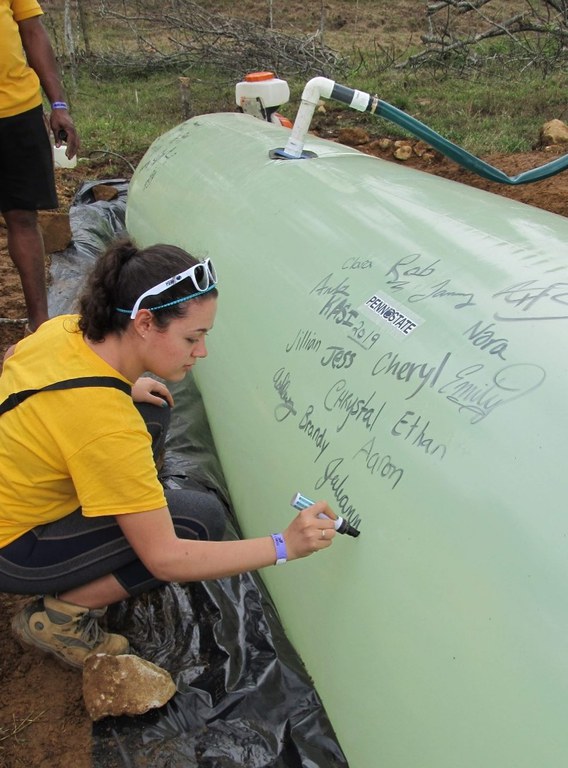Posted: September 15, 2020
It was an educational experience unlike anything I have ever been challenged with.
Choosing to spend my Junior year spring break in Costa Rica with the ERM 499 class titled Costa Rica Sustainable Agriculture and Natural Resources, definitely set the bar high for my future senior year spring break. Originally not quite sure how I felt about spending my week break with a class full of original strangers, I happily returned with a list of amazing memories, and a handful of new friends.
While in Costa Rica, we visited and stayed at Earth University for the first half where we learned about many techniques of sustainability practiced in Costa Rica. Since Earth University is very diverse with students that attend from all over the world, we were able to learn about sustainability worldwide, and the challenges that come with it. As a hands-on project putting our knowledge to work, we had the opportunity to build a biodigester for a local farmer in Costa Rica. Simply consisting of a large thick plastic bag, the biodigester would help the farmer save time, money, as well as have a positive impact on the environment. With the main product of creating methane gas that is then used for cooking food, the biodigester also creates an alternative deposit for the animal's manure as opposed to entering and contaminating the local stream.
In addition to the biodigester project teaching us about sustainability, it also taught many of us how to overcome a language barrier. With a head engineer, three locals, 16 students ready to work, and a single tour guide as a translator, everyone was tested with patients and teamwork. Many hand motions were used in addition to the small amount of Spanish known by the class during the process of building and implanting the biodigester. It was an educational experience unlike anything I have ever been challenged with. In the end, the farmer was very appreciative for our volunteering acts, and we were more than happy to be able to contribute to the green footprint in Costa Rica.
The entire week was an educational experience where we were constantly learning about the country, sustainability, farming techniques, the environment, and habitat of Costa Rica. We simultaneously had the chance to hike up a volcano, hike down to waterfalls, test out the hot springs, visit the beach, and an option to go ziplining as well as white water rafting on our own time. I look back and am amazed at all the activities we crammed in a week-long trip. It was exhausting in the best way possible.
Ag Sciences Global
Address
106 Agricultural Administration BuildingUniversity Park, PA 16802
- Email globalag@psu.edu
- Office 814-863-0249
- Fax 814-865-3055
Ag Sciences Global
Address
106 Agricultural Administration BuildingUniversity Park, PA 16802
- Email globalag@psu.edu
- Office 814-863-0249
- Fax 814-865-3055


